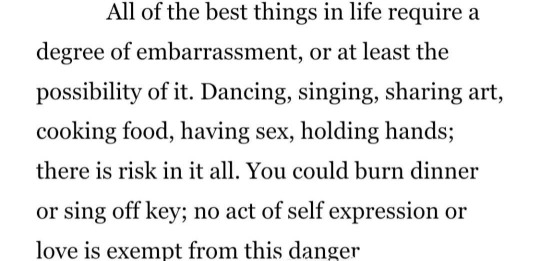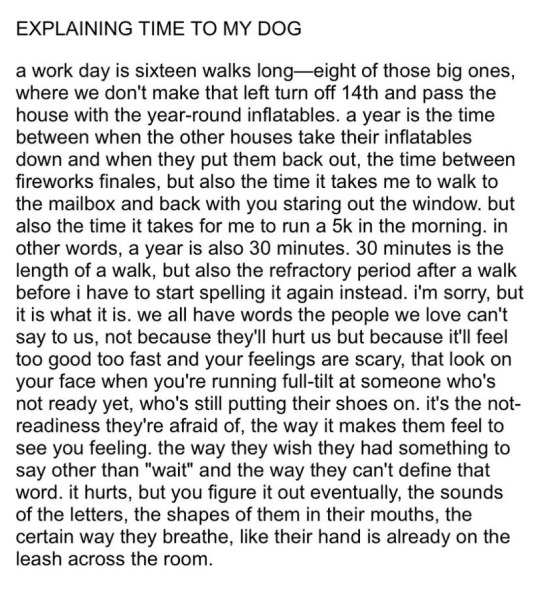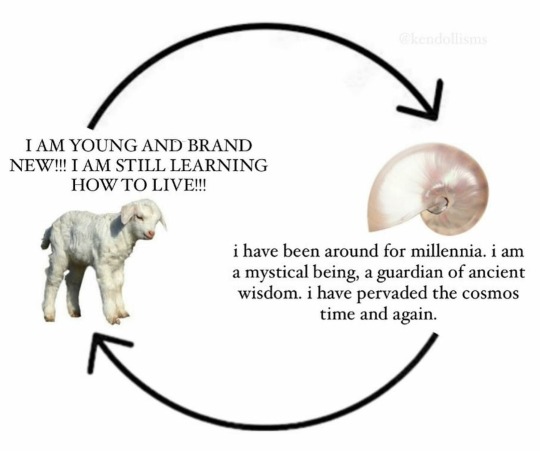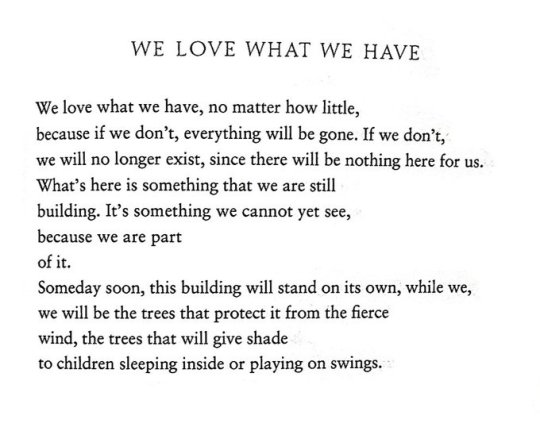(emika) intj, reader, poet, scholar (homeric), not a hedonist but a hedonist also, decaying���
Don't wanna be here? Send us removal request.
Text
"it's all in your head" correct! unfortunately I am also in there
244K notes
·
View notes
Text
i hope i’m always remembered for any good i’ve done or any kindness i’ve given out, i hope i’ve left some love in someone’s heart
2K notes
·
View notes
Text
tumblr is not social media. idk how to explain but its so calm here. like this is the field and the valleys. over there is the town and people. but here we are little sheep in our pastures eating our grass and laying in the sun <3
21K notes
·
View notes
Text
not being able to borrow an ebook because someone else has it on loan is stupid as hell. like babe this is Document. these are pixels.
23K notes
·
View notes
Text
Grad school is lying to you. You can indulge fixations on obscure topics on your own time. You can sit in a library color-coding notes on articles printed from JSTOR for free. You can argue with dead philosophers in essay format whenever you like. Academia is a state of mind.
14K notes
·
View notes
Text
"fate is a cruel mistress" damn that's crazy lol is she single 👀
1K notes
·
View notes
Text
'yeag' is a typo to YOU but to me she conveys a feeling that 'yeah' does not
69K notes
·
View notes
Text
A commonly overlooked symptom of depression is anhedonia, the inability to feel joy or pleasure. The reason that it’s easy to overlook is that it’s easier to miss the absence of something that’s not around all the time than it is to miss a symptom that causes active distress, such as feeling tired and miserable all the time.
Anhedonia is good at being a persistent undercurrent to your life. My aunt, who has major depressive disorder, related to me that she figured out that something was wrong when she looked at the daffodils she had planted blooming, and couldn’t recognize the emotion that she felt when she looked at them. It had been long enough since she had felt happy that she lost the ability to recognize the emotion.
It’s a particularly dangerous depressive symptom, because it robs you of the ability to feel those little spots of joy that keep a lot of people going, while not doing anything to impair your ability to function. If you don’t know that this is a treatable symptom of depression, it’s easy to assume that your ability to feel good is permanently broken, and decide to commit suicide because you don’t want to live like that. It’s not an irrational conclusion, but it is an uninformed one, and everyone deserves to have all the information when making a major decision.
This is what a lot of questionnaires are trying to look for when they ask about “loss of enjoyment”. If you can’t remember a loss of enjoyment because you can’t remember enjoyment, then you probably have anhedonia. If you struggle to define how it is to feel “happy”, “content”, or “good”, or how it feels when you feel those emotions, you probably have anhedonia. If you can’t remember feeling any of those emotions for a week or more, you probably have anhedonia.
Symptoms commonly co-occurring with anhedonia are fatigue (often the cause), clear and thoughtful consideration of suicide, loss of desire to socialize or do activities that used to make you happy, and weight loss (due to lack of enjoyment of food).
This section is anecdotal. In what I have observed, anhedonia due to fatigue rarely responds well to depression treatment unless depression was causing the fatigue. If fatigue and anhedonia are co-occurring and are not both alleviated by depression treatment, consider other causes for the fatigue.
12K notes
·
View notes








